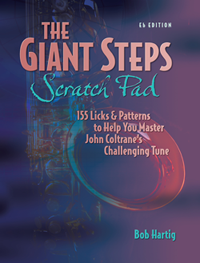Normally, I”m not one to take the copy-and-paste approach to blogs when it comes to text. I much prefer to generate my own content. But by means of introducing you to “jazz theologian,” pastor, and eloquent communicator Robert Gelinas, I want to let him speak for himself.
Responding to the question, “What is a jazz theologian?” Gelinas provides the following insight:
A jazz theologian is someone who understands that jazz is more than music. Music is a great place to hear and observe jazz, but jazz is so much more. Jazz has been expressed in a number of mediums: poetry, literature, sports and art to name a few.
Fundamental to jazz is Call and Response, syncopation and improvisation. A jazz theologian takes these concepts and then applies them to following Christ and living out his glorious gospel of the Kingdom of God.
I strongly encourage anyone interested in the link between jazz and spirituality to check out Gelinas”s blog, Reflections of a Jazz Theologian. You”ll find some refreshingly original observations about the nature of Christianity, the gospel of Jesus, the way the church was designed by God to function versus the different ruts it has fallen into, and the implications of a “jazz-shaped faith” for living a fully integrated life.
Keep an eye on Gelinas. He has a lot to say, and he says it very well, with a rare combination of thoughtfulness, creativity, and passion.

